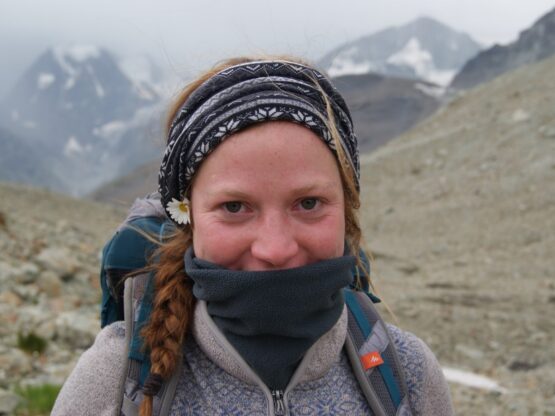Vio, please introduce yourself.
My name is Vio Coulon. I am an ice sheet modeller working as a Postdoc Researcher at the ULB in Brussels.
Tell us about your professional and academic career before becoming part of the OCEAN:ICE community.
My academic background is in Geography. I completed my PhD in Brussels, where I focused on estimating the contribution of the Antarctic ice sheet to future sea level changes using the Kori-ULB ice flow model, with a strong emphasis on quantifying the associated uncertainties. Before joining OCEAN:ICE, I was involved in PROTECT, another EU-funded project that aims to assess and project changes in the land-based cryosphere.
What do you do within OCEAN:ICE?
I am involved in Work Package 4, where my main objective has been to produce a fast-track dataset offering projections of freshwater fluxes (including ice-shelf melting, calving, and surface runoff) from the Antarctic ice sheet extending to the year 2300. This dataset can serve as a forcing input for climate models that do not include interactive ice sheets. Hopefully, integrating these projections into climate models will help to assess the impact of the ice sheet on regional and global ocean and atmospheric dynamics.
What have you enjoyed about OCEAN:ICE so far?
Prior to this project, my focus was mainly on Antarctic projections related to sea level rise, and the concept of freshwater fluxes was somewhat abstract to me. Working within OCEAN:ICE has broadened my perspective and allowed me to learn a lot about the oceanic dimension of Antarctic mass change and its implications for global climate dynamics. I also really enjoy how this project fosters collaboration between researchers from different fields, bringing together members of the ice-sheet, ocean, and observational communities.
Tell us about a skill or trait unique to you that you would like to share?
I struggled to find an answer to this question, so I asked my colleagues what they thought my skill was. I expected them to mention my singing skills during our karaoke sessions at the lab's Christmas parties, but instead they said I was good at bringing out the best in the team. They said I was always thinking about how to help the group do well, not just about myself. It is true that what I enjoy most about working in academia is probably the collaborative nature of it and the idea of contributing to a common goal.
Stay tuned on our social media channels (X, Mastodon, LinkedIn and Facebook) for more of the series of OCEAN:ICE 'Researcher in the Spotlight' articles.


